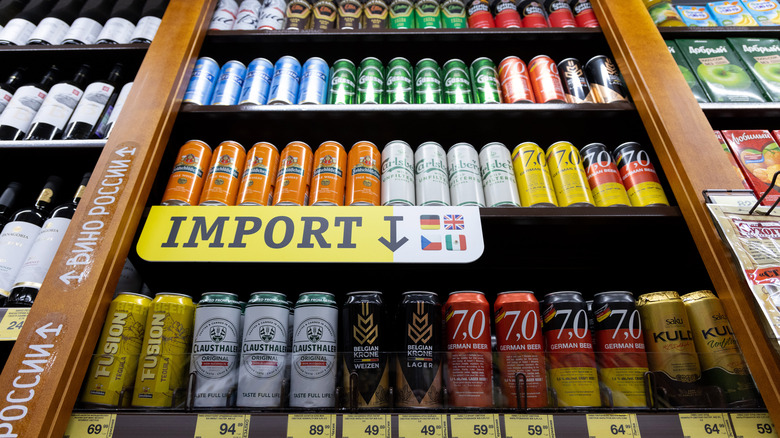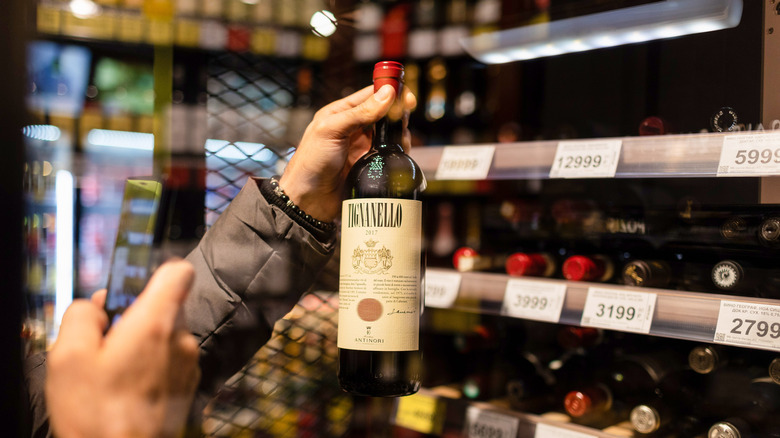Why Alcohol Might Be Hard To Find In These States
States across the country have begun to suffer from the latest shortage: alcohol. Recently, NPR reported that Vermont, North Carolina, New Jersey, Pennsylvania, and Ohio are among the states that could see a bit of a dry spell. Certain states, such as Virginia and Pennsylvania, have started to limit the amounts of particular liquors you can purchase. Liquor stores in some states have run out of specific items. So depending on where you are, loading up on popular options like Patrón tequila will be tough.
Warnings that such issues might emerge were around back in August when The Drinks Business wrote that the lifting of various COVID-mandates set off a massive upsurge in alcohol purchases. You had bars reopening, restaurants that needed stocking, and people who had grown used to drinking at home contributing to demand. Moreover, this ravenous demand is tethered by a global supply chain that still feels the shocks of the pandemic's disruptions.
Supply Chain Dive states that these disruptions include more than just COVID-19 regulations halting imported drinks. Many distilleries import their glass, meaning that any disruption there creates a backlog. There have been issues with North Carolina's electronic system managing alcohol shipping as well as a host of other problems. Even if these issues might prove insurmountable on their own, their confluence with the ever chaotic world of the pandemic has evidently been too much for some brands like Hennessey, whose cognac will have a two-bottle purchase limit in Pennsylvania.
Part of the issue is simply unpredictable demand
A lot of the issues contributing to the alcohol shortages and rationings come from the supply chain. However, the demand has also caught some makers on the backfoot.
David Ozgo, the chief economist of the Distilled Spirits Council of the United States, explained to NPR that distillers cannot produce their drinks to fit the whims of current demand. It takes years to grow the crop, distill the drink, and age the final spirit. So, when there's a sudden surge in popularity like the one tequila has enjoyed, "you can't go back five years and retroactively plant more agave," Ozgo said. "It doesn't work that way."
There is no possible way for makers to address this issue other than to make more tequila for some time in the future and hope that demand hasn't sharply declined by that point. But as the current situation shows, predicting that an upswell or downswing in consumption will occur years into the future can be difficult. The issue is out of their hands.

